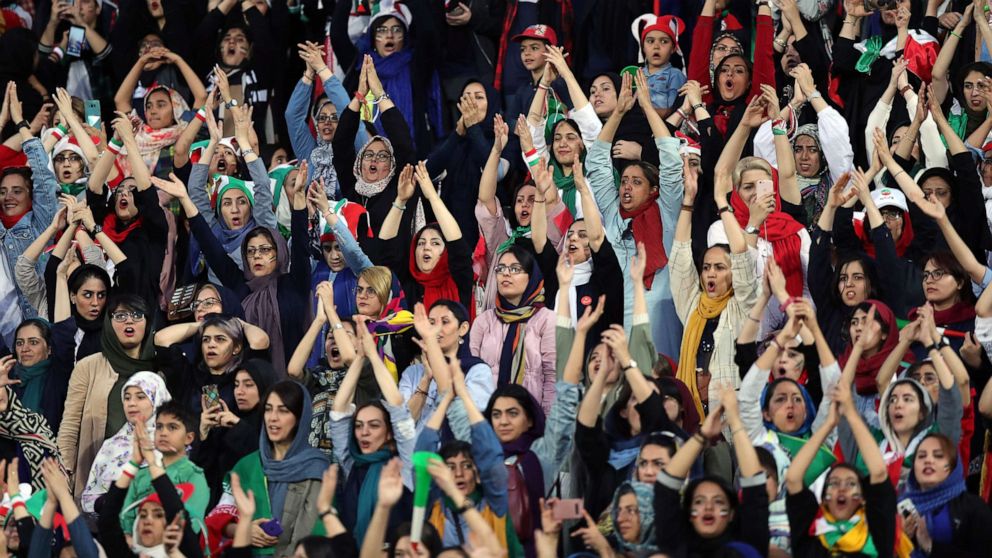Women attend soccer match in Iran after decades of being kept out
They waved flags. They painted their faces with stripes of green, white and red. They celebrated with blowhorns.
For the first time in four decades, women were allowed to pack into Tehran’s Azadi stadium on Thursday to cheer along with male fans as Iran's national soccer team played a World Cup qualifier against Cambodia.
“It is truly exciting! Enjoying one of my basic rights for the first time,” Zahra Ahooei, 30, told ABC News as she made her way to the stadium, in between cheerfully sending bursts of air into her horn painted the colors of the Iranian flag. She wore the white team jersey and a matching hat that her husband had given her as a gift.
FIFA, the international governing body, has long obliged the Football Federation of the Islamic Republic of Iran, FFIRI, which excludes women from buying match tickets. But after a 30-year-old woman named Sahar Khodayari set herself on fire and died in protest last month following her arrest for trying to enter Azadi Stadium earlier this year, FIFA changed its position.
“Women need to be allowed to enter football matches freely,” FIFA said in a statement at the time, addressing FFIRI.
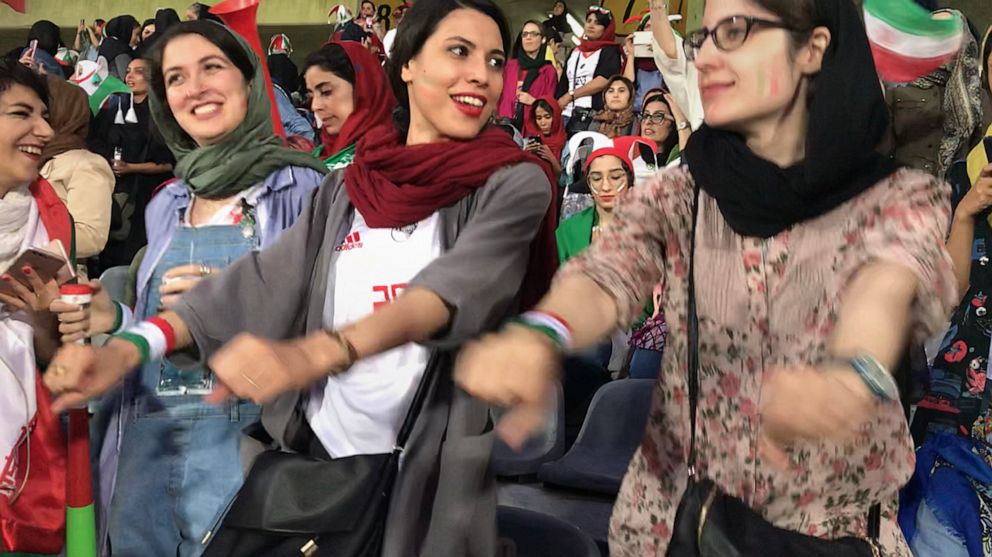
In March, Khodayari had disguised herself as a man so she could watch Esteghlal, an Iranian soccer team, play against the UAE’s Al Ain. But once a stadium security officer wanted to carry out a physical inspection, Sahar told the officer she was a woman and was arrested. Since her death, she has become known as The Blue Girl -- a reference to the color of the Iranian team.
On Thursday, female fans had to use a separate parking area and enter through a women-only own gate, and they were confined to a single section of the stadium.
The match itself was not a huge draw and most of the seats in the 100,000-capacity stadium, which were available only to men, sat empty. Because only about 3,500 seats were allocated to women, those tickets sold out quickly, and some disappointed fans took to Twitter to complain to FIFA about the ticketing restriction with the hashtag WakeUpFIFA.
Inside the stadium, women didn’t miss the chance to shout their demands, besides jubilation.
Some women shouted “Seats are spared, no space for women!" and "The Blue Girl, you are missed!” But the demonstrations were quickly quieted by policewomen who patrolled the stadium.
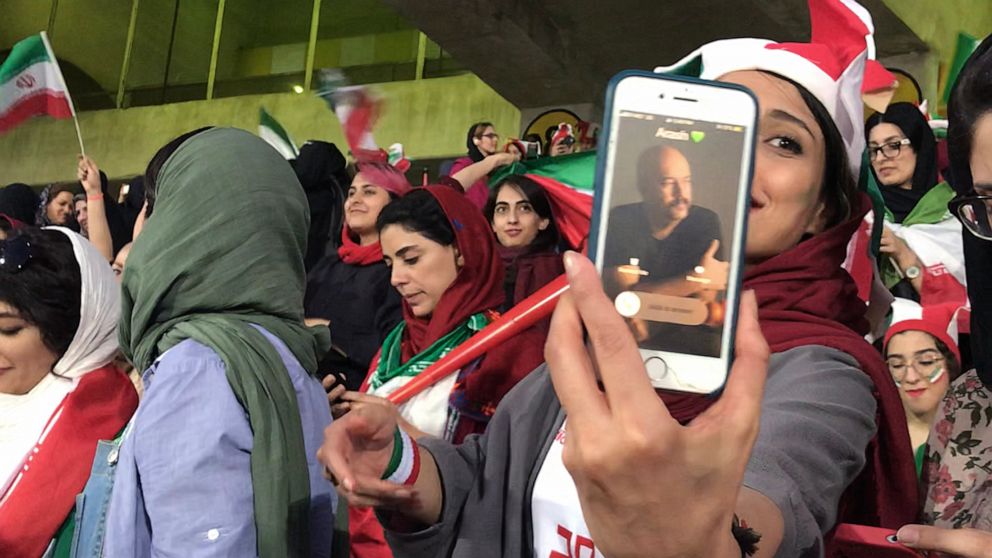
“Sahar will be greatly missed today," Zahra said. "I am sure everyone will think about her here.”
Another woman, a 25-year-old teacher named Hedyeh, came to the stadium with her friend, Matina, who is also 25. (The women asked that their last names not be disclosed for their security.) Hedyeh said she was disappointed that so many women were stuck outside the stadium while so many seats were empty.
In the days leading up to the match, some officials in President Hassan Rouhani’s administration tried to claim credit for the historic moment.
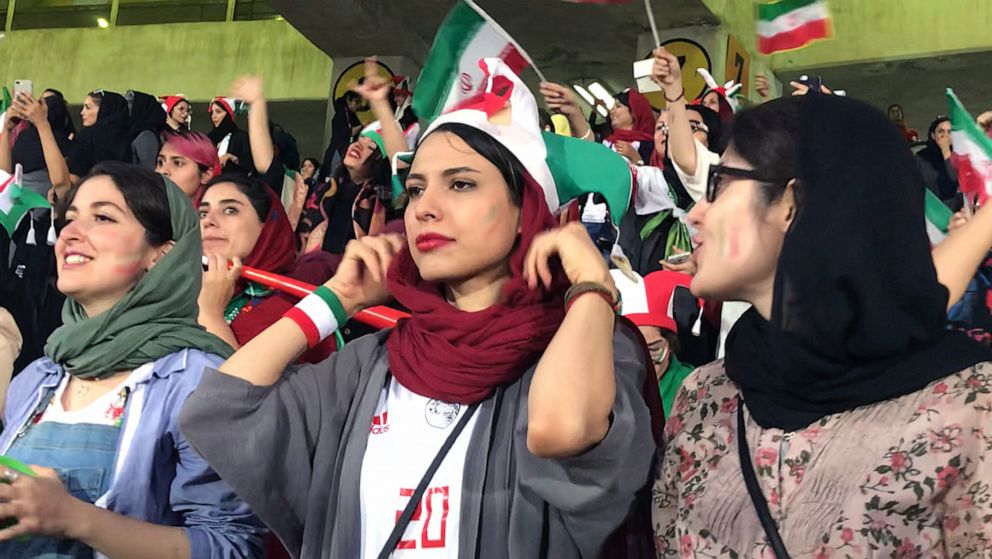
“The entry of women into the stadium is the result of internal efforts, not external pressure,” Ali Rabiei, spokesman of the government tweeted on Monday, a claim that was followed up on Thursday with the spokesman saying he has mediated for letting some women who did not have tickets to enter the stadiums, as PANA reported on Thursday.
But Iranians quickly rebutted the claims.
“If women are in the stadium today, it is the result of the #BlueGirl’s death. It's not the government's pursuit of women's demands,” Mojgan Jamshidi, a journalist responded to Rabiei’s tweet on Tuesday.
Some women are worried about obstacles that might not let their attendance at the stadiums turn to a routine. For example, Kayhan, a conservative daily affiliated to hardliners, described women who attended the stadium in a front-page headline as “victims of freedom,” on Saturday. A literature which shows hardliners will keep fighting against giving more freedom to women in this regard. However, women hope this time FIFA along public demands can keep the window open.
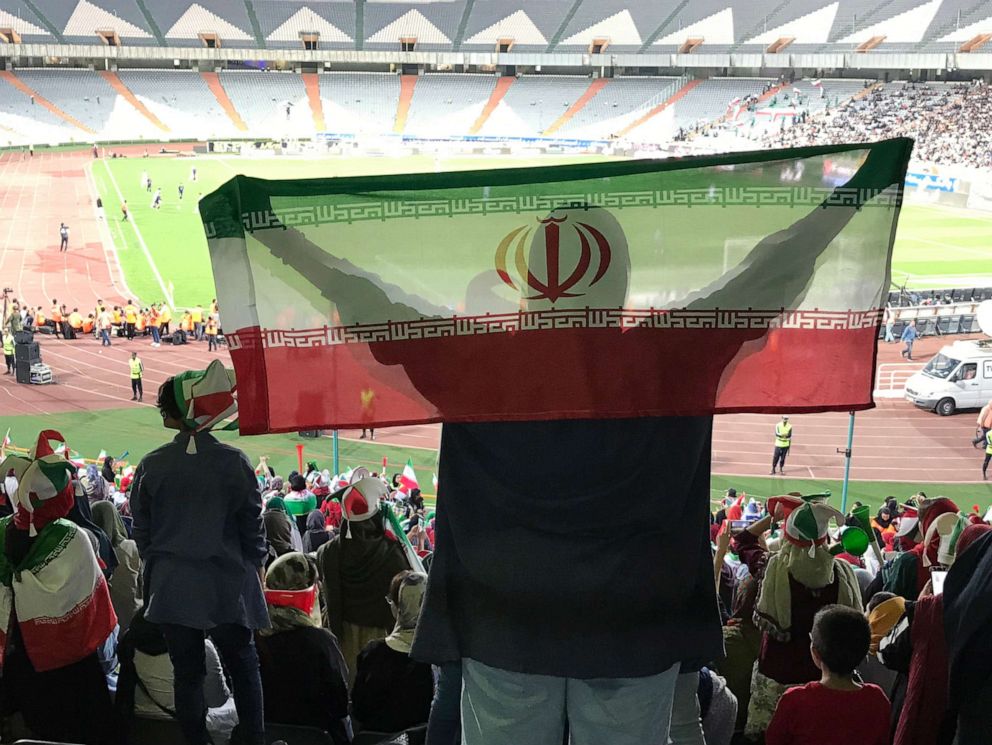
After the match, which Iran won handily, FIFA issued another statement and called the day a "very positive step forward."
“There can be no stopping or turning back now,” the statement said.
“History teaches us that progress comes in stages and this is just the beginning of a journey,” the statement added.
